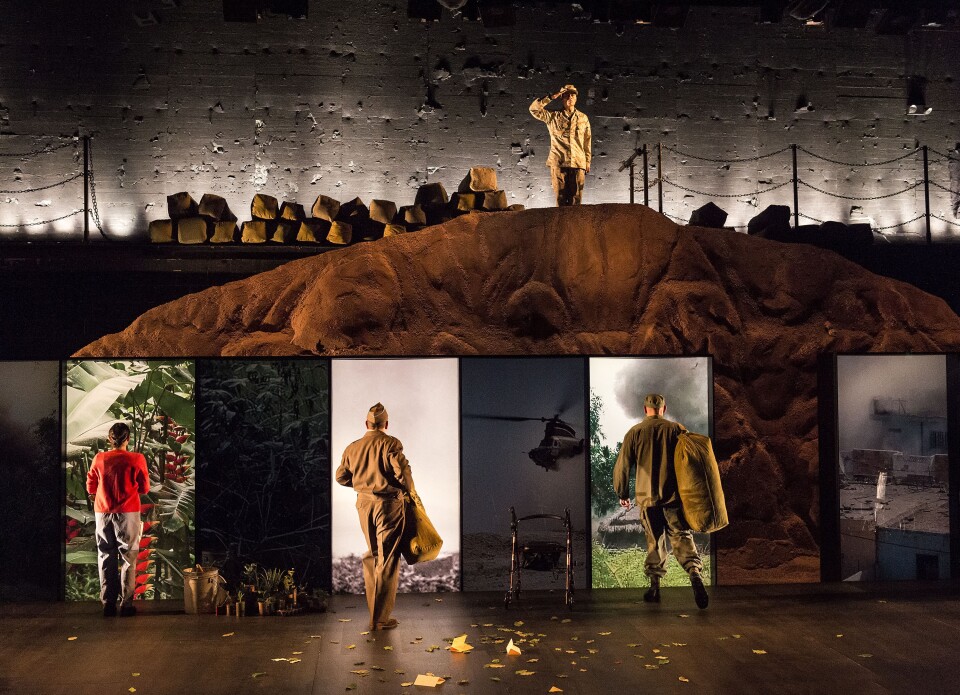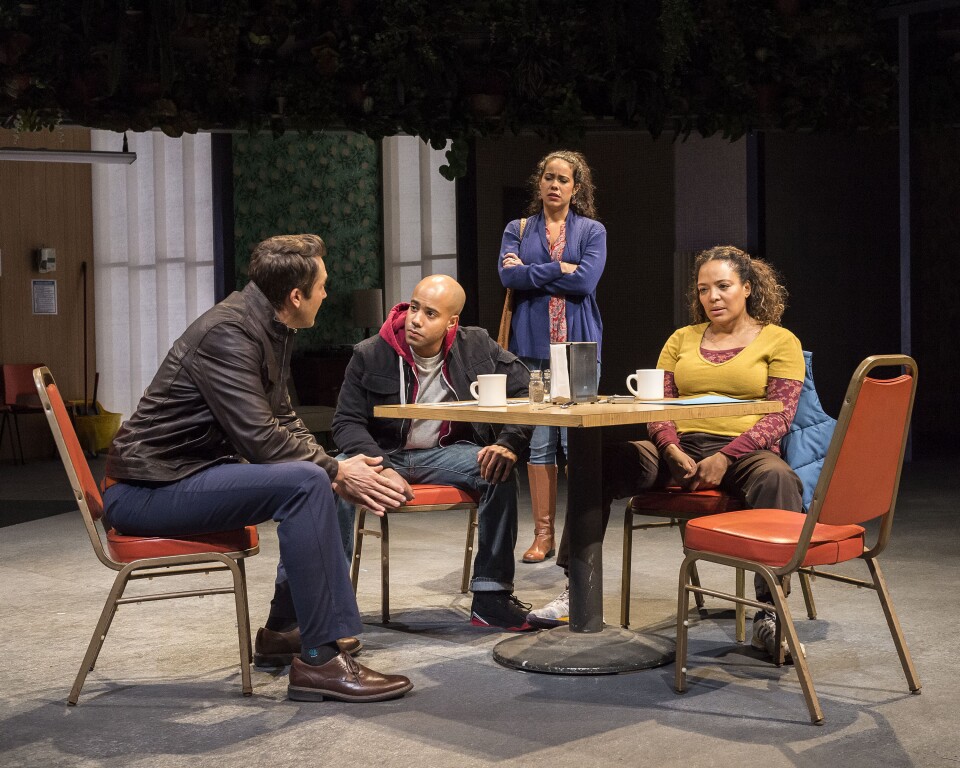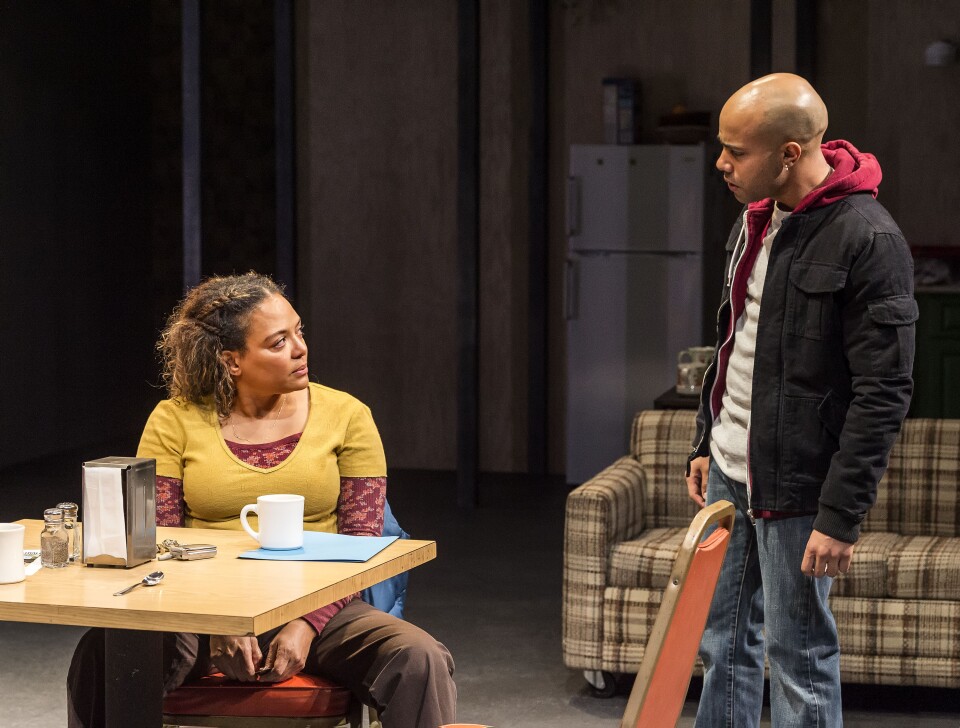The rapper and veteran songwriter collaborated on the Oscar-nominated "Stand Up for Something"; playwright Quiara Alegría Hudes trilogy of plays get a concurrent staging in L.A.; this year's Havana Jazz Fest featured first-time performances by a few expats.
Musical diplomacy rules the day at a jazz festival in Cuba
HAVANA — Every year, the International Jazz Plaza Festival brings musicians and fans from all over the world to Havana for an intense week of performances across the Caribbean city. The festival includes a wide range of artists, some of whom are here this year for the first time.
On a cool winter evening at the Casa de la Cultura de Plaza, the group NG La Banda is playing Dizzy Gillespie’s “A Night in Tunisia.” NG La Banda created one of Cuba’s most popular dance styles, known as timba. The band leader, flutist Jose Luis Cortés, used to play with Cuba’s super jazz group, Irakere, and the iconic salsa band, Los Van Van.
At the annual festival, jazz and Cuban music converge to create a potent mix unlike anywhere else. It was here, at this venue in 1980, where Cuban jazz singer Bobby Carcassés founded the festival, encouraging collaborations between jazz and Cuban artists.

At the festival’s home, the historic Hotel Nacional, New York-based saxophonist Irwin Hall says he’s playing here with singer Dee Dee Bridgewater for the first time.
“The people here are very giving and very friendly," Hall says. "We’ve had a great time. We got to see some local musicians play and be able to play with them — and man, cats here are really [good]."
It wasn’t always easy for American musicians to come to Cuba. But things began to loosen up at the end of 2014 when President Obama announced that the U.S. would resume diplomatic relations with Cuba. The Trump administration, however, reversed some of the Obama policies, but it’s still possible for individuals to come to Cuba.
“This is smoke-and-mirrors from the Trump administration," says writer Ned Sublette, author of “Cuba and Its Music." "They got rid of one thing, which was individual [travel], which was the way the Obama administration put Cuba travel on the honor system. Well, you can’t do that, you’re not supposed to come for sun-and-beach tourism, but you can come to Cuba. For any musician coming to Cuba, its 'professional research.'”
Tenor saxophonist Joe Lovano was another of the Americans who came here this year. He played a set of ballads with the renown Amadeo Roldán Conservatory Symphony Orchestra. Lovano first played at the festival in 1986, with Charlie Haden’s Liberation Music Orchestra. In 2003, Lovano returned with his own band. He says Cuban music and jazz have been together for decades:
“That’s because of the influences of the amazing masters that came to the States in the '30s and '40s from Cuba, and did collaborations with Dizzy Gillespie and Charlie Parker. There was some amazing music that was put together with the spirit of the life of the people.”
The Cuban government is even welcoming expatriate musicians. Cuban bassist Yunior Terry is playing at the festival for the first time, performing with his older brother’s group, the Yosvany Terry Quintet. The brothers left Cuba for New York 20 years ago.

Yunior says in addition to playing at a couple of the festival’s major venues, this return to Havana is all the more meaningful because he and Yosvany performed at their alma mater, the National School of the Arts:
“We’ve been having a blast, sharing our experiences and bringing a little bit of the knowledge we have acquired through all these years. And it's always so great to give back and see so many young people so hungry for information. They heard us on record for many many years, but they’ve never seen us play before live, so this is a great opportunity and we’re so happy to be here doing this.”
The festival is organized by the National Center of Popular Music. Cuban dance music has been a key component of the festival since the beginning. One of this year’s revelations was the 40-year old singer Alain Pérez and his Orchestra.
Pérez, who’s played bass with major music figures, including pianist Chucho Valdés, singer Celia Cruz and flamenco giant Paco de Lucia, returned to Cuba a couple years ago from Spain and launched his solo career. Pérez says all the years he spent abroad have enriched his approach to music-making:
“It’s a different way of feeling, a much more open way to express — more sincere, more natural, closer to the public. But very Cuban, with all the jazz and folk music influences.”
Ned Sublette first came here in 1990 and organizes trips for his Cuban music seminars on the island. He says it was quite an intense festival back then:
“It was overwhelming! And I had kind of forgotten what this kind of musical orgy feels like, even though I go to a lot of festivals. This is like my Spotify playlist has come to life! Coming to Cuba and immersing yourself in the music is an experience that transforms you.”
Playwright Quiara Alegría Hudes on veterans, John Coltrane and Puerto Rican identity
Quiara Alegría Hudes won the Pulitzer Prize for drama in 2012 for “Water By the Spoonful.” It’s the centerpiece of a trilogy of plays originally inspired by a cousin of the playwright’s — a former Marine who served in Iraq.
For the first time ever, the three plays are being produced simultaneously. Three venues here in Los Angeles are mounting the productions: The Kirk Douglas Theater in Culver City; and the Mark Taper Forum and the Los Angeles Theater Center, both in downtown L.A.
The plays are an exploration of family ties that bind — and that sometimes sadly unravel.
When Hudes visited The Frame studio, she discussed writing about war, staging productions for veterans, and using Bach and John Coltrane as musical metaphors.
Interview Highlights:
How she based the plays on of her cousin Elliot's military service:
When he returned from his first deployment with a leg injury, he was on base in San Diego. We met up because I was working on a theater project, coincidentally, nearby. So we went out for dinner and I hadn't seen him since he had left for boot camp. He clearly had some traumatic experiences in the line of duty. So we ate a big dinner and laughed, as cousins do. But I called him a few weeks later and said, "I can't stop thinking about some of the things you told me about what you saw in war and I would like to tell a story about that. And how would you feel about that?" He said, "Cool. I'm game."

What interested her about Elliot's story:
It's not that he was part of some extremely horrible or extremely glorious war act — though there were some special moments for him and his platoon. But, really, his story seemed like the story of many people who are in military service. And I liked the everyday quality of that. The thing with war as a topic is, it is evergreen. It's nothing new at all.

Showing the play to an audience of veterans:
The first time one of these plays was premiered in New York — "Elliot: A Soldier's Fugue" runs about 70 minutes, it's a short play — we used that as an opportunity to invite a different veteran to lead a [discussion] after every single show. It was still fairly early in the Iraq war. People were dealing with trauma — people's relatives, their children, their husbands and wives were overseas. So people wanted to stay and talk about their experiences and hear what the veterans had to say.

On how music informs her writing:
I do love music and it informs my plays. For instance, the first play explores Bach and I love the mischief in connecting Puerto Rican men who have served in the United States military [with] Bach preludes and fugues. They don't seem like they go well together but, in fact, they go really well together. The second play [looks] at John Coltrane and jazz as a kind of musical metaphor for reentry into civilian life and the dissonance that happens there.

On being the daughter of Puerto Rican immigrants and the lack of literature detailing Puerto Rican family life:
Hearing [my elders'] oral history of the island was the only entry point I had to that history. This was not stuff that I was taught in school, nor was it stuff I could even find in the Philadelphia library. So I thought, There's space here. This is the American story. One of the reasons I think that the story of the Puerto Rican family is really the story of the American family is because it's a wildly diverse culture in terms of spiritual practice, in terms of class, in educational backgrounds. So to me, my Thanksgiving table is a microcosm of this nation more broadly. So I think it has relevance to our community and it has relevance to the national community.
"Water By the Spoonful" is at the Mark Taper Forum through March 11; "The Happiest Song Plays Last" is at the Los Angeles Theatre Center through March 19.
Common and Diane Warren's Oscar-nominated song asks us to 'Stand Up for Something'
More than 160 current Oscar nominees gathered on Monday in Beverly Hills for the annual Academy Award nominees luncheon.
It’s one of the few moments during the hectic awards season when filmmakers, actors, and below-the-line artisans such as makeup designers and sound editors can relax and mingle.
It’s also a sort of odd window into the fact that all these entertainers will soon participate in the March 4 awards telecast. That’s most evident when Oscar producers gently remind everyone how to give a good acceptance speech.
The event ends with the nominees gathering for a big group photo:

After the luncheon wrapped up, we headed downstairs from the ballroom to a dining room to talk with Diane Warren and Common.
The songwriters and performers are nominated for the song “Stand Up for Something” from “Marshall,” a film about the early legal career of Supreme Court Justice Thurgood Marshall, the first African American to sit on the court




